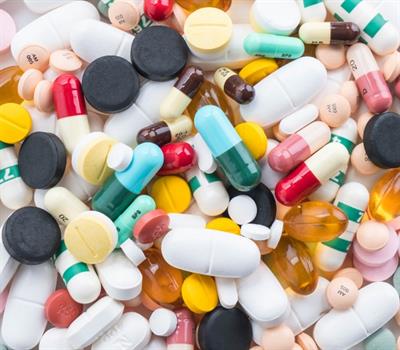
PUMPA - SMART LEARNING
எங்கள் ஆசிரியர்களுடன் 1-ஆன்-1 ஆலோசனை நேரத்தைப் பெறுங்கள். டாப்பர் ஆவதற்கு நாங்கள் பயிற்சி அளிப்போம்
Book Free DemoMicrobes in the field of medicine:
Alexander Fleming was working on a disease-causing bacteria culture in 1929. When he returned to his laboratory after a vacation, he found spores of green mould, otherwise known as fungus Penicillium notatum, contaminated the petri dishes of bacteria. He noticed that the presence of mould, inhibited the bacterial development. Also, many of these bacteria were destroyed by this fungi. He published his work and named the mould juice that kills many of the bacteria in his laboratory - Penicillin, a well-known antibiotic.
Microorganisms are the source of antibiotics and vaccines.
Antibiotics:
The word "Antibiotic" is derived from the Greek words "anti", which means "against," and "bios", which means "life" (a bacterium is a life form).
Answer:
Antibiotics are medications that are used to kill or stop the growth of disease-causing microorganisms.
There are microorganism-derived products that are taken as pills, capsules, or injections. Primarily, bacteria's are used in manufacturing antibiotics. Nowadays, many fungi and algae are also being used.

Antibiotic tablets The list of antibiotics is given below.
Example:
Penicillin, streptomycin, erythromycin and tetracycline are the most common antibiotics made from fungi and bacteria.
Antibiotics are manufactured by growing specific microorganisms and are used to treat a wide range of illnesses. They are also incorporated into livestock and poultry feed to prevent microbial infections. They are also used to fight a variety of plant diseases. On the other hand, antibiotics are ineffective against the common cold and flu, caused by viruses.
Video explaining how antibiotic works
Important!
Alexander Fleming discovered the first antibiotic, penicillin, in 1929. It was produced from the fungus called Penicillium.
Measures to use the antibiotics:
- It is essential to note that antibiotics can only be used under the supervision of a trained physician.
- It is necessary to complete the entire course prescribed by the doctor.
- If you take antibiotics when you don't need them or in the wrong doses, the medication can become less effective.
- Antibiotics taken unnecessarily can also destroy the body's beneficial bacteria.
Antibiotics respective to their organisms:
Class | Type | Antibiotic |
| Bacteria | Streptomyces griseus | Streptomycin |
| Bacteria | Streptomyces erythreus | Erythromycin |
| Bacteria | Bacillus subtilis | Bacitracin |
| Fungi | Penicillium notatum | Penicillin |
| Fungi | Cephalosporium acremonium | Cephalosporin |
Reference:
https://www.freepik.com/free-photo/packings-pills-capsules-medicines_1178867.htm#page=1&query=Colorful%20pills&position=0